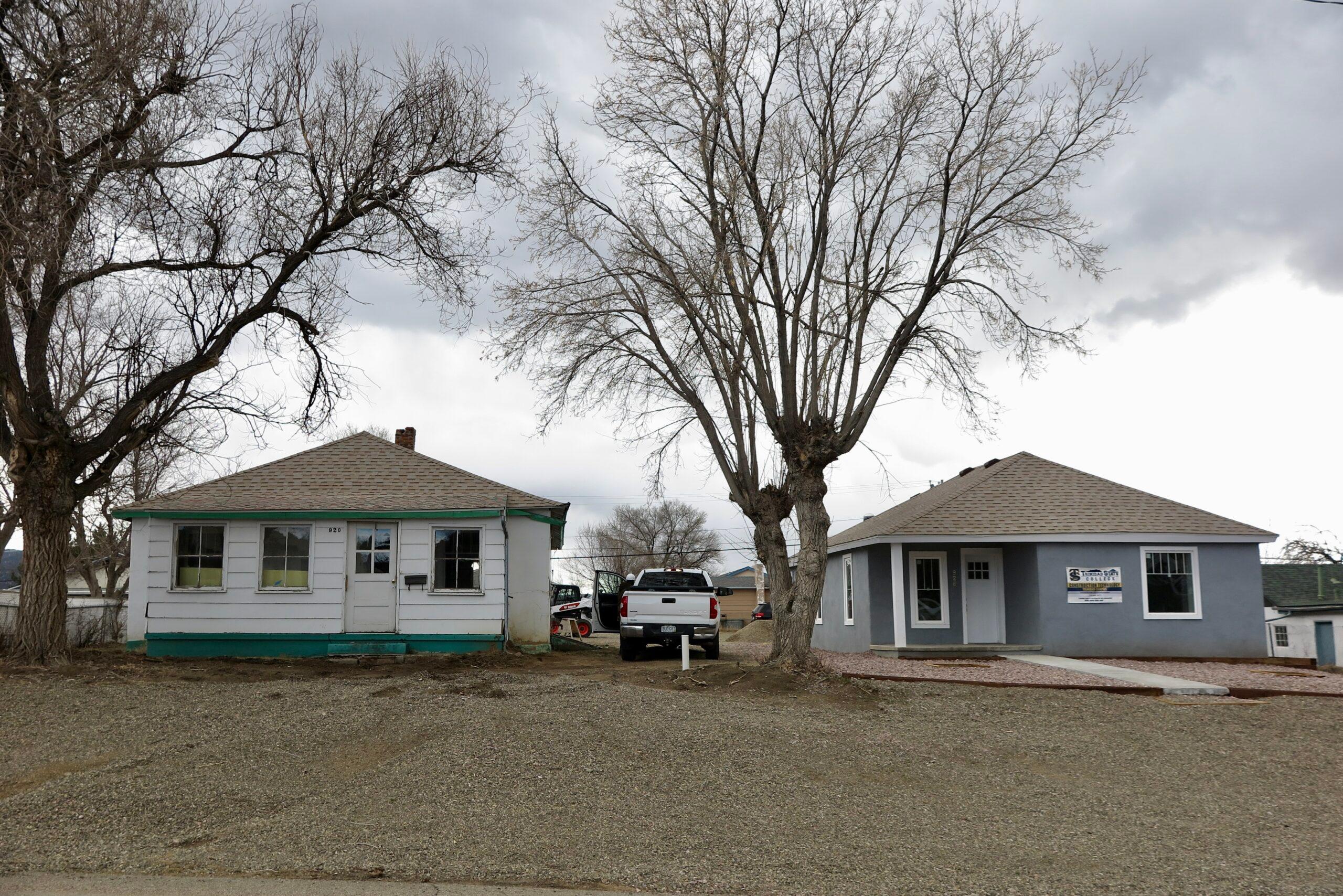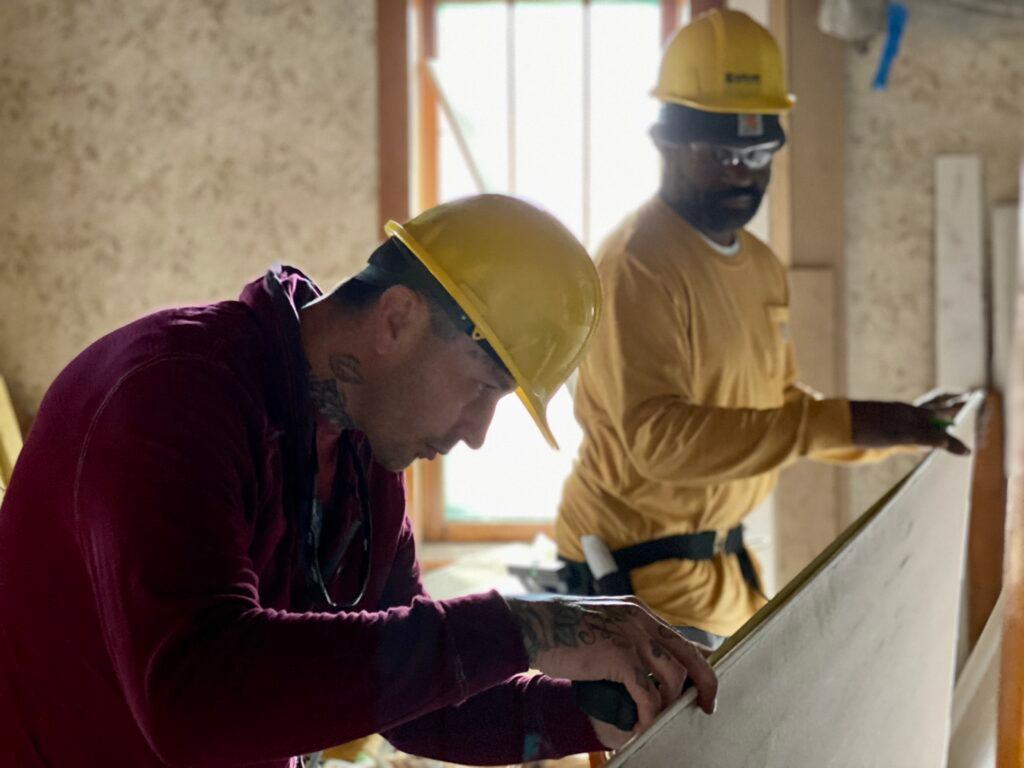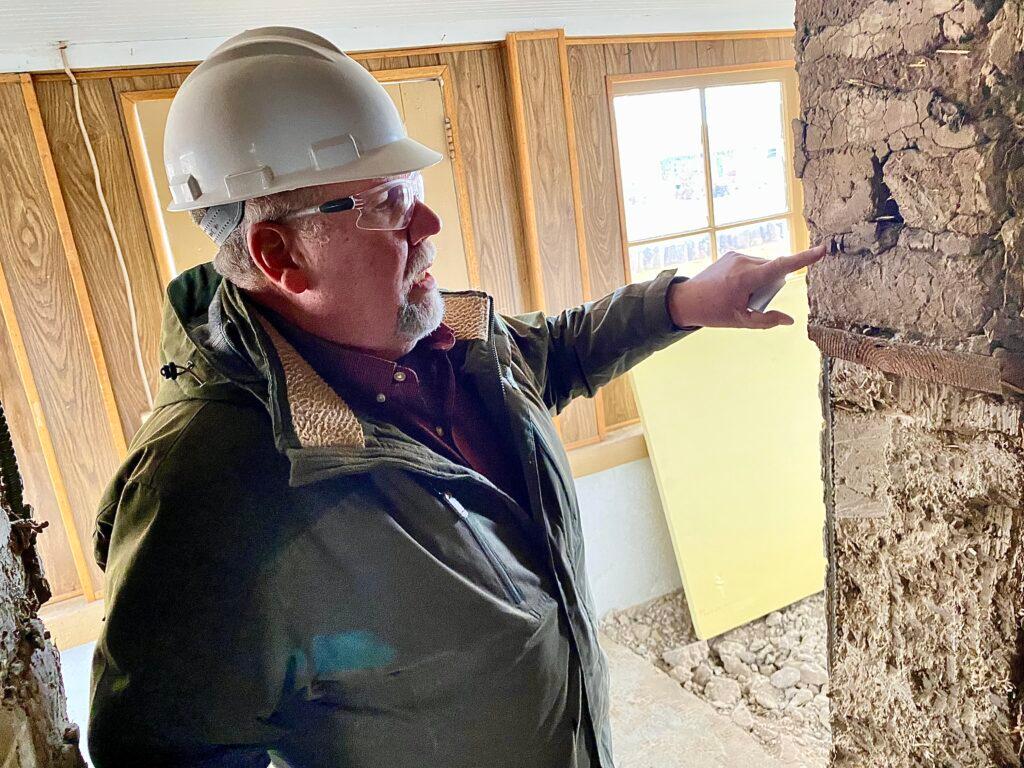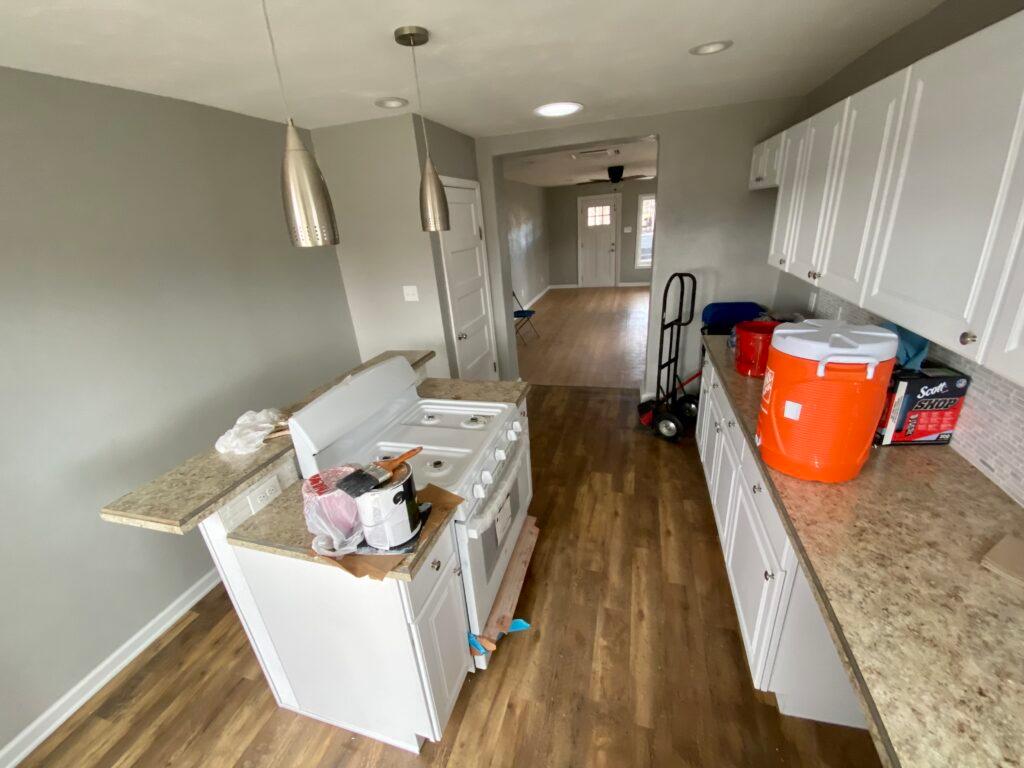
Being a construction worker was not some long-held dream for Brian Moreno. He worked in an auto body shop. It was the birth of his daughter eight months ago that led the 33-year-old to start evaluating a different career path.
He just wasn’t making enough money.
“Yeah, for my life right now,” Moreno said, “I just need to get a job and something quick, you know? Start supporting my family.”
So, he started studying in the welding program at Trinidad State College in Southern Colorado. The certification takes a year, though, and that was too long to wait for Moreno to wait for work. Then, next to where his welding classes were being held, he saw another program underway and quickly transferred. It was a new effort from the college offering to help plug eager workers into construction jobs with just four weeks of training.
The course would consist of about half hands-on work, renovating one of the many blighted, run-down homes found in the city.
COPERR Program in Trinidad is a template for similar initiatives in Southern Colorado
What Moreno transferred into was the first in an experimental grant program from the Colorado Attorney General’s Office. Taking $5 million the state received more than a decade ago in a nationwide settlement stemming from the 2008 mortgage crisis, the office wanted to help address a long-standing challenge facing southeastern Colorado in particular.
That challenge: Communities in the region often have a decent supply of housing supply that could, in theory, help alleviate the affordable housing issues found all over the state. The problem is the properties in that supply are so dilapidated that they’re unlivable.
The Colorado Partnership for Education and Rural Revitalization — or COPERR — initiative, has created short-run programs at Trinidad State College, Lamar Community College and, most recently, Pueblo Community College. Blighted homes in the areas become the laboratory for those students to learn the homebuilding trade. Trinidad’s program started in March 2021.
“We're committing to a theory that we are testing in the marketplace,” said Colorado Attorney General Phil Weiser. “If you train people to redevelop these properties, you do redevelop them. You'll sell them, improving the community, and the money will go back into the program and it will keep sustaining itself.”

Neighborhood renewal
Recently, on Trinidad’s west end sat what were originally two nearly identical homes. Moreno and his classmate Steven Wilson were learning to cut sheetrock in one of the homes.
It was difficult to tell which parts of the disarray inside had to do with the demolition and renovation work of the class, and what was the natural byproduct of a property long vacant.
Jerry Begley, who runs the construction training program at the college, pointed out the inside of the walls of the home were nothing more than earthen bricks made of dried mud and straw from the 1900s.
“Adobe walls, and it insulates really good as far as this [being] over a hundred years old,” Begley said. “When you go next door, you’ll see that it can, we can, turn things around.”
Next door, the other house is the first property in the COPERR program to go back on sale. The outsides of the homes are totally dissimilar. And the inside of the second house, notwithstanding some remnants of the original interior, including sections of hardwood flooring and the pantry door, has been entirely renovated by Begley’s students into a modern two bed, two bath starter home with entirely new plumbing, electrical and HVAC systems. The college expects to sell it for about $220,000.
Getting the property ready for market took about a year and a half, with new students cycling through the program each month. Begley said he expects the turnaround time to drop as the initiative matures.
“I think every community could use something like this to be able to help the needs of dealing with blighted homes, improving neighborhoods, bringing property values up,” Begley said.

Building a workforce
Weiser acknowledged the properties completed by the COPERR program won’t make a directly substantial dent in providing affordable housing stock for the region.
“But, by training people to do construction work in Southern Colorado, we believe we're creating an economic opportunity engine because we're creating the workforce that's needed to develop housing far beyond what happens in the program itself,” Weiser said.
Begley said the relatively short COPERR training — students typically spend just four weeks learning the trade — could help draw in underserved communities or low income people motivated to try something new. In addition to the hands-on training, students also get paid $12 an hour as well as a tool belt and the books they need to learn for no cost.
Students who complete the course come away with a certification from the National Center for Construction Education and Research.
“We have an opportunity to take some people who might be down and out, who want a second, third, fourth, fifth chance to come in and they say, ‘We need a job,’” Begley said. “Trinidad stays right there on the cutting edge [helping people] in four weeks just maybe get a turnaround.”
What Begley said he did not expect was the number of people signing up for the program looking not for a career change, but a set of skills to help with their own home improvement goals. He recently had several women take the course after failing to find local professionals for specific projects on their own properties.
While taking a break from installing the sheetrock with Moreno, Wilson explained he was also taking the class more as a learning opportunity than a direct path to a new job. The 51-year-old has family in construction and after retiring from the military in 2016 thought he would use his GI Bill to start on a path toward managing a construction company. He said the business management program he eventually took felt somehow incomplete.
“[It was] strictly book knowledge, you know? Behind the desk, no hands on, no getting your hands dirty,” Wilson said. “I feel like what I'm learning here … it's almost like a crash course, but it's a good crash course.”
He said in the three weeks he had been learning from Begley, he had learned everything from driving a skid steer to framing a door to safely smashing a 500-pound cast iron bathtub.

Acquiring supply a challenge
Perhaps ironically, the biggest challenge for Trinidad State College has been acquiring blighted homes for the students to renovate.
“It has been really difficult to get homes and get them at a reasonable price,” said LiAnn Richardson, director of the COPERR grant funds at the college.
She said the city has plenty of blighted properties that could meet the needs of the program. However, either the owners have been asking more than the program can pay or they have not been able to find the owners at all.
Tracking down the owners of old and decaying properties has been a problem in Trinidad outside of the COPERR program. The city is in the midst of a cultural renaissance following a pandemic-fueled exodus of a number of artists and entrepreneurs from Denver. City Manager Steve Ruger said the challenge finding owners has created obstacles to facilitating some new investment in the city’s historic district and areas surrounding the new Fishers Peak State Park.
“The latest record they might be able to find is [from] a hundred years ago, and it’s something that’s not very formal and doesn’t really particularly address the exact property boundaries,” Ruger said.
COPERR program managers at the Trinidad State College Alamosa campus have also expressed difficulty in acquiring properties.
Weiser said part of the intention behind creating the grant program was discovering what complications with the state’s tax lien, condemnation and property ownership policies would need to be adjusted to make renovating blighted properties more practical.
“We're reflecting on ‘What's the way forward?’ because that clearly is part of the opportunity here is to get properties … into circulation and out of the deep hole that some of these properties are in,” Weiser said. “We don't have yet an answer on this, but it's something we're thinking about.”








